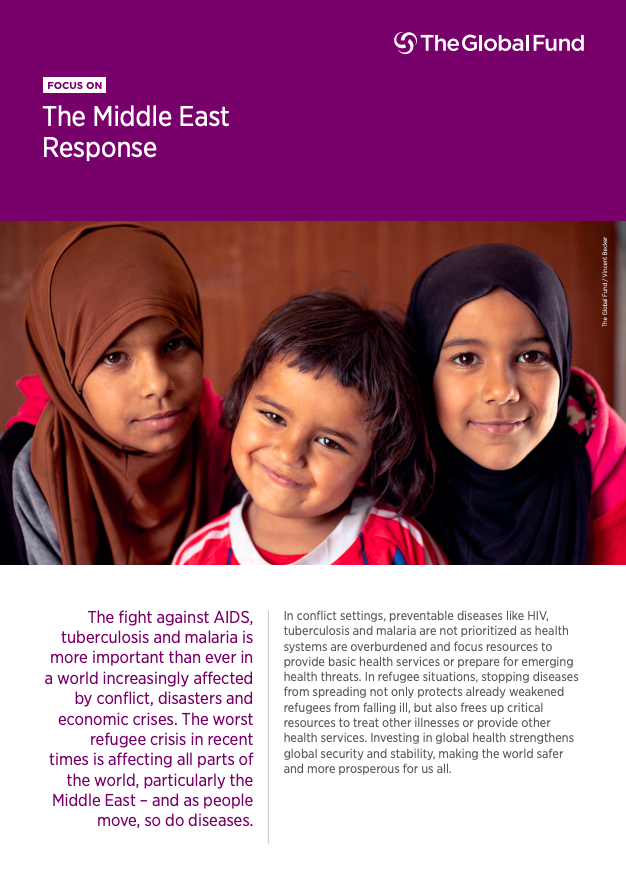Knowledge Platform
Middle East HIV, TB and Malaria Response Phase 2
Ensuring Continuity of Treatment and Essential Services for People Affected by HIV, TB and Malaria in Yemen, Syria, Iraq, Jordan and Lebanon
The Middle East Response (MER) initiative was an innovative approach that provided essential HIV, TB, and malaria services to eligible country populations in Syria, Yemen and Syrian refugees in Jordan and Lebanon. This was done through one regional grant management platform with the aim of improving responsiveness to the three diseases in the context of emergencies in the aforementioned countries. The project started on 1 January 2017 and ended on 31 December 2018.
The goal of the MER Phase 2 is to provide essential HIV, TB, and malaria services to eligible country populations in Syria, Yemen, Iraq, and Syrian and other refugees in Jordan and Lebanon. Building and consolidating on the lessons learned from MER Phase 1, strategies in MER Phase 2 will deliver additional impact through scaling-up prioritized interventions in the MER Phase 1 programme; prevention of collapse of public health services for all three diseases that have received considerable investment and strengthening through earlier Global Fund grants before their current complex emergencies; prioritizing and protecting vulnerable populations, especially conflict-affected populations. The project started on 1 January 2019 and will end on 31 December 2021. A programme overview for IOM Yemen can be found here.
